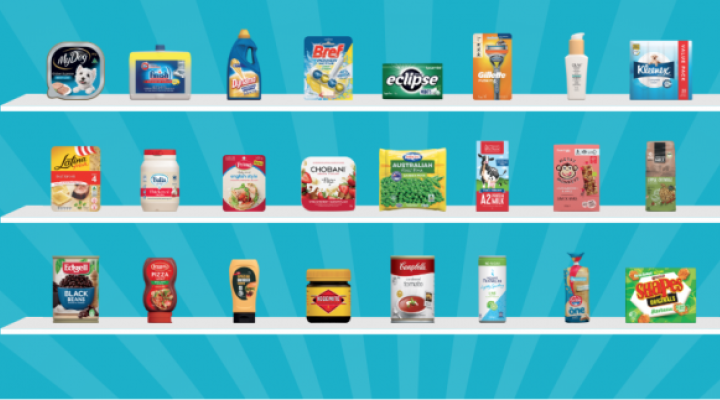Despite the popularity of Coles collectibles in recent years, the supermarket giant has made the decision to ditch the sales tactic for good as part of its vision to be Australia’s most sustainable supermarket. Over the last three years, the retailer launched six campaigns including iterations of Coles’ Little Shop and Stikeez, as well as Coles Little Treehouse. The Little Shop campaigns in particular proved extremely popular with consumers, with the first campaign driving a 5 per cent jump
mp in sales for the first quarter of 2019, despite only lasting eight weeks.
More recent campaigns aimed to be more environmentally-friendly with the latest Stikeez collectibles being fully recyclable and the Treehouse book series made from FSC certified paper.
But the next chapter for Coles is about going further on its sustainability commitments, which includes efforts to reduce unnecessary plastic. Recently, the retailer stopped selling single-use plastic tableware, including cups, plates, bowls, straws and cutlery, as part of its measures.
Coles chief marketing officer Lisa Ronson said that while collectibles proved popular, they no longer align with the brand’s sustainability ambitions or with customers’ preferences and priorities.
“As part of our Together to Zero mission, we’ve been reviewing our marketing campaigns through a sustainability lens. While very popular, we must listen to our customers who say their priorities are changing,” Ronson said.
“We are proud to be now using our marketing platforms to raise awareness of our sustainability ambition which is focused on acting together now for generations of Australians ahead. We are on a journey and understand our responsibility to minimise our environmental footprint and to show leadership in protecting our planet and climate.”
This Sunday, Coles will launch its national “Together to Zero” campaign to communicate its sustainability measures to consumers. The campaign, which was first unveiled in March, centres around zero waste, zero emissions and zero hunger targets. It also includes a commitment to be powered entirely by renewable electricity by the end of FY25.
Australian retail expert and QUT professor of marketing Gary Mortimer told Inside Retail that the move is an example of how retailers are focused on the race to be “green”.
“Rather than competing on price or convenience, a focus on promoting green credentials offer a way for supermarkets to differentiate themselves,” Mortimer said.
“Coles’ announcement is very much about value alignment. As shoppers become more conscious about environmental issues, they are more likely to support those retailers that are taking practical steps to reduce waste and implement innovative sustainability initiatives.”
Packaging targets
Coles recently surveyed 9000 customers on environmental issues in retail, and found that reducing waste to landfill and plastic packaging were the key concerns, with 69 per cent saying it was of high importance to them.
Ronson said the business is committed to packaging innovation to ensure that where packaging and plastic cannot be eliminated, that they are contributing to the circular economy by being recyclable and produced with recycled content where possible.
As part of its packaging efforts, Coles has already removed 31 million soaker pads from meat trays this year and plans for packaging on its instore bakery items, such as cookies, donuts, danishes and muffins, to be made with fully recycled content by FY22.
Woolworths refocuses on fresh
Rival Woolworths also launched a new campaign on Friday, the latest take on its Fresh Food People message.
Today’s Fresh Food People spotlights the supermarket’s diverse teams and demonstrates the retailer’s commitment to fresh, healthier foods and supporting local growers.
Woolworths Group chief marketing officer Andrew Hicks said the retailer has been known as The Fresh Food People for over 30 years, but that it’s time to evolve that messaging.
“Australia and the world has changed profoundly over the last 18 months, and so have the expectations of our customers. As today’s fresh food people, we need to evolve and grow with them,” Hicks said.
“It will continue our focus on our team bringing a little good to everyone every day while ensuring our priorities match customers’ expectations on how we can create a better tomorrow for all Australians. Keeping Australians COVIDSafe and the care we show for team and customers during these times will also continue and be a key part of what it means to be Today’s Fresh Food People.”
The first television commercial associated with the campaign will premier during the Opening Ceremony of the Tokyo Olympic Games on Friday night, capitalising on Woolworths’ position as a fresh food partner of the Games.
The supermarket giant is powering forward with collectibles as part of its marketing strategy, with an Aussie Heroes Olympics sticker promotion.

